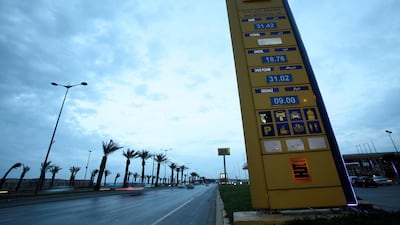Algeria is backtracking on some economic reforms such as cutting costly subsidies as the country wants to minimise the risk of protests before presidential elections next year, according to the budget data and experts.
The North African oil producer country had said at the start of the year subsidies for fuel and other products would be lowered from 2019 to rein in spending following a fall in oil revenues from 2014 to 2017. It gave no specifics.
But its draft budget for next year includes a 7 per cent increase in subsidy spending, accounting for 21 per cent of the budget. The rise will be used to subsidise basic food items including milk and cereals as well as housing, officials say.
The government had also approved this year higher and new taxes for some products and increases in subsidised fuel prices for the third straight year. But no new such hikes are planned for next year, according to the draft.
___________
Read more
UN: Algeria again sending migrants into the desert to die
___________
Analysts said a rise in oil prices this year had made officials confident of being able to postpone cuts in subsidies, part of welfare spending to discourage dissent, without straining public finances.
Speaking to Reuters, central bank governor Mohamed Loukal noted that the 2019 budget assumes oil prices at $50 (Dh183.6) a barrel, whereas benchmark crude prices are around $67, and hit $87 last month.
Finance Minister Abderrahmane Raouia signalled the change in tack this month. "Our subsidy policy will be maintained because Algerian citizens still need it," he said, without giving details.
Algeria has avoided upheaval like other Arab countries but riots broke out in 2011 over a rise in sugar and cooking oil prices.
This year doctors and teachers went on strike for months over work conditions, while the unemployment rate remains at around 11 per cent. Youth unemployment is believed to be higher.
"(The) next elections require a stable social policy. It would be wrong to upset people (by cutting subsidies)," said economics professor Abderrahmane Aya.
The ruling coalition has called on President Abdelaziz Bouteflika to seek a fifth term in the election in April. The 81-year old, in office since 1999, has not yet said whether he would stand.
The economy has improved in recent months. Oil and gas revenues, which account for 60 per cent of the budget and 94 per cent of export revenues, rose by 15 per cent in the first nine months from the same period in 2018.
The economy is expected to grow by 4 per cent this year after 2.2 per cent last year.
But diplomats and business leaders say backtracking on curbing subsidies might give investors the impression the government is not serious about reforms and opening up the state and oil dominated economy.
Officials have repeatedly said they wanted to boost the small non-energy sector to reduce the import bill and create jobs.
Ali Haddad, head of the country's largest business association, Algerian Business Forum, said Algeria needed to encourage private investment. "This ... requires bold reforms," he said.
Another prominent businessman, Boualem Merakech, head of the Algerian Confederation of Employers (CAP), recently complained about "difficulties faced by business leaders seeking to invest in a calm environment and a clear economic vision".
Some diplomats said the shelved subsidy plan will add to confusion among investors trying to figure out economic policies in a secretive country.
They point to three different rules applied in the past two years to reduce imports.
"I think that this kind of changes (of the import rules) makes it difficult for firms to make plans and understand the environment in which they will work in six or 12 months," US ambassador John Desrocher told reporters. "Attracting more investment requires more transparency, more predictability and better access to markets."

